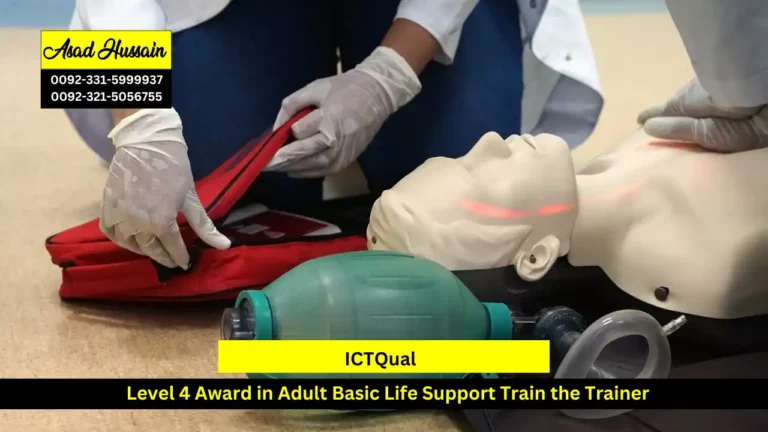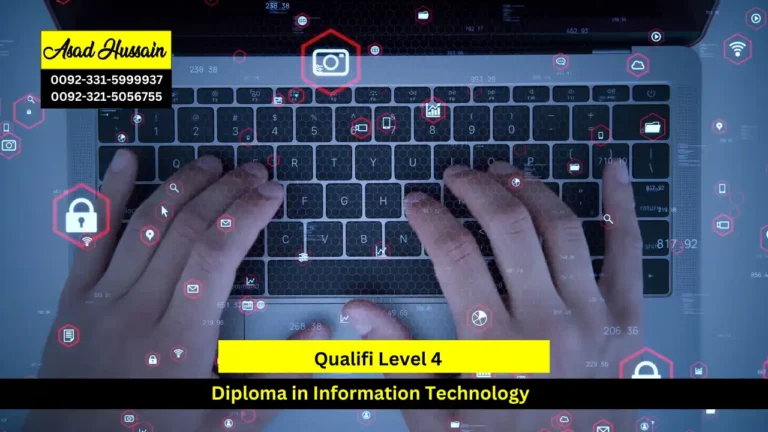In the dynamic landscape of health and safety, the importance of comprehensive fire safety training cannot be overstated. Whether you work in healthcare, education, or any other sector, the ability to train others in fire safety can be a pivotal skill. The ICTQual Level 4 Award in Non-Clinical Fire Safety Train the Trainer is a prestigious qualification designed to equip individuals with the expertise needed to effectively train others in fire safety practices.
The ICTQual Level 4 Award in Non-Clinical Fire Safety Train the Trainer is a specialized program that focuses on non-clinical settings. This means the training is tailored for environments outside of clinical or healthcare settings, making it ideal for a wide range of industries such as corporate offices, educational institutions, retail, and more.
Many professionals who have completed the ICTQual Level 4 Award in Non-Clinical Fire Safety Train the Trainer have gone on to achieve remarkable success. From establishing their own training businesses to leading fire safety programs in large organizations, the impact of this qualification is profound.
The ICTQual Level 4 Award in Non-Clinical Fire Safety Train the Trainer is more than just a qualification; it’s a stepping stone to becoming a leader in fire safety education. By empowering yourself with this award, you can make a significant difference in the safety and well-being of others. Whether you are looking to advance your career or make a positive impact in your community, this program offers the knowledge, skills, and recognition you need to succeed.
Invest in your future and the safety of those around you by enrolling in the ICTQual Level 4 Award in Non-Clinical Fire Safety Train the Trainer. Your journey towards becoming an expert fire safety trainer starts here.
Program Highlights
Mandatory Units
- Introduction to Fire Safety Training
- Fire Prevention Strategies
- Emergency Procedures and Evacuation
- Fire Safety Equipment and Systems
- Training Delivery and Facilitation
- Assessment and Evaluation
- Practical Application and Case Studies
- Candidates should possess a minimum of a Level 3 qualification or equivalent in a relevant field, such as fire safety management, occupational health and safety, emergency management, or a related discipline. This ensures a foundational understanding of fire safety principles and practices.
- Prior experience working in roles related to fire safety, emergency response, health and safety management, or facility management is highly desirable. Applicants should have practical experience dealing with fire safety protocols and procedures in non-clinical settings.
- While not mandatory, previous experience in delivering training sessions or teaching adults is advantageous. This could include roles such as a fire safety trainer, safety officer, instructor, or facilitator.
- Strong verbal and written communication skills are essential for effectively delivering training sessions and engaging with learners. Applicants should be able to articulate fire safety concepts clearly and facilitate meaningful discussions.
- Proficiency in the language of instruction (usually English) is necessary to fully engage with course materials and participate in discussions.
Introduction to Fire Safety Training
- Understand the fundamental principles of fire safety.
- Recognize the importance of fire safety training in various non-clinical environments.
- Identify common fire hazards and risks in different settings.
- Explain the legal and regulatory requirements related to fire safety.
Fire Prevention Strategies
- Develop comprehensive fire prevention plans tailored to specific environments.
- Implement effective measures to minimize fire risks.
- Conduct regular fire risk assessments and audits.
- Promote a culture of fire safety awareness and prevention among staff and stakeholders.
Emergency Procedures and Evacuation
- Design and implement effective emergency response plans.
- Conduct evacuation drills and ensure all personnel are familiar with evacuation procedures.
- Understand the roles and responsibilities of fire wardens and emergency coordinators.
- Evaluate and improve emergency procedures based on drill outcomes and feedback.
Fire Safety Equipment and Systems
- Identify and explain the functions of various fire safety equipment and systems.
- Ensure proper installation, maintenance, and inspection of fire safety equipment.
- Train others on the correct usage of fire extinguishers, alarms, and other safety devices.
- Integrate fire safety systems with overall safety and emergency response plans.
Training Delivery and Facilitation
- Develop effective fire safety training programs tailored to diverse audiences.
- Utilize various training methodologies and techniques to engage participants.
- Deliver clear, concise, and impactful training sessions.
- Adapt training content to meet the specific needs of different groups and settings.
Assessment and Evaluation
- Design assessment tools to evaluate the effectiveness of fire safety training programs.
- Conduct formative and summative assessments to measure participants’ understanding and skills.
- Analyze assessment results to identify areas for improvement in training delivery.
- Provide constructive feedback to participants and adjust training programs accordingly.
Practical Application and Case Studies
- Apply theoretical knowledge to real-world fire safety scenarios.
- Analyze and learn from case studies of fire incidents and prevention strategies.
- Develop practical solutions to fire safety challenges in non-clinical environments.
- Demonstrate competence in implementing fire safety measures through hands-on exercises and simulations.
The ICTQual Level 4 Award in Non-Clinical Fire Safety Train the Trainer is designed for a diverse group of professionals who are committed to enhancing safety within their organizations. It is ideal for health and safety officers seeking to expand their expertise, HR and training managers aiming to integrate fire safety into their organizational training programs, and facility managers responsible for maintaining safe and compliant environments. Additionally, this course is perfect for individuals aspiring to become specialized fire safety trainers, equipping them with the knowledge and skills necessary to effectively educate others. Whether you’re in corporate, educational, retail, or other non-clinical settings, this course provides the essential tools to make a significant impact on fire safety practices and training within your sphere of influence.







